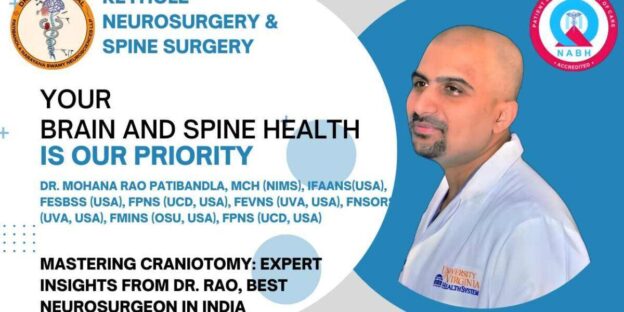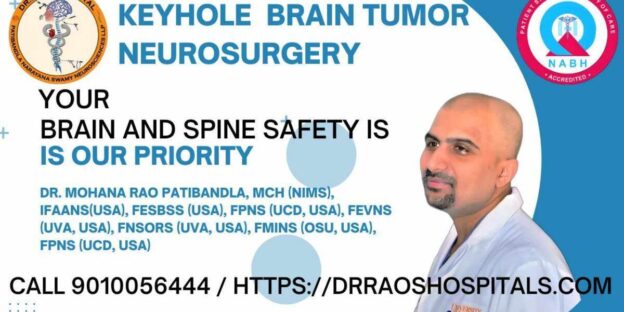“Dr. Rao: Pioneering Excellence as the Best Neurosurgeon in India”
Introduction
In the realm of neurosurgery in India, one name stands out as a beacon of excellence: Dr. Mohana Rao Patibandla. Renowned for his two-decade journey in the field, Dr. Rao has emerged as the go-to neurosurgeon, earning accolades as the best in the country.
Best Neurosurgeon in India: Dr. Rao’s Journey to Excellence
As a leading neurosurgeon in India, Dr. Rao’s journey began with a commitment to pushing the boundaries of neurosurgical care. Trained in the USA and armed with a plethora of expertise, he brought back a wealth of knowledge to elevate neurosurgery standards in India.
Neurosurgeon in India: Redefining Patient-Centric Care
His unwavering dedication to patient-centric care sets Dr. Rao apart as a neurosurgeon in India. His impact resonates from bustling cityscapes to rural landscapes as he combines compassion with cutting-edge techniques, making advanced neurosurgical care accessible to all.
Best Neurosurgeons in India: Dr. Rao’s Hospital: A Hub of Excellence
Dr. Rao has created a hub of excellence at the helm of Dr. Rao’s Hospital. The state-of-the-art facility boasts a biplane cath lab, a hybrid operation theater, and a multidisciplinary team, positioning it as a frontrunner in neurosurgical advancements.
Neurosurgery Elevated: Dr. Rao’s Expertise
Dr. Rao’s expertise spans a spectrum of neurosurgical procedures, from intricate brain surgeries to minimally invasive spine interventions. His approach combines innovation with a patient-first philosophy, ensuring the best outcomes for those seeking neurosurgical care. In a recent deccanherald
Recognitions and Accolades: Dr. Rao’s Stature
As one of the best neurosurgeons in India, Dr. Rao’s contributions have not gone unnoticed. His accolades and recognitions are a testament to his commitment to advancing neurosurgery and providing unparalleled patient care.
Choosing Excellence: Why Dr. Rao Stands Out
Choosing the best neurosurgeon in India is pivotal in the vast landscape of neurosurgery. Dr. Rao’s unwavering commitment to excellence, patient-centric care, and pioneering advancements make him the natural choice for those seeking top-tier neurosurgical expertise.
Conclusion
A dedication to excellence, patient-centered care, and a relentless pursuit of raising neurosurgical standards characterize Dr. Mohana Rao Patibandla’s journey to becoming the best neurosurgeon in India. As a beacon of innovation, he continues to shape the future of neurosurgery in India.


